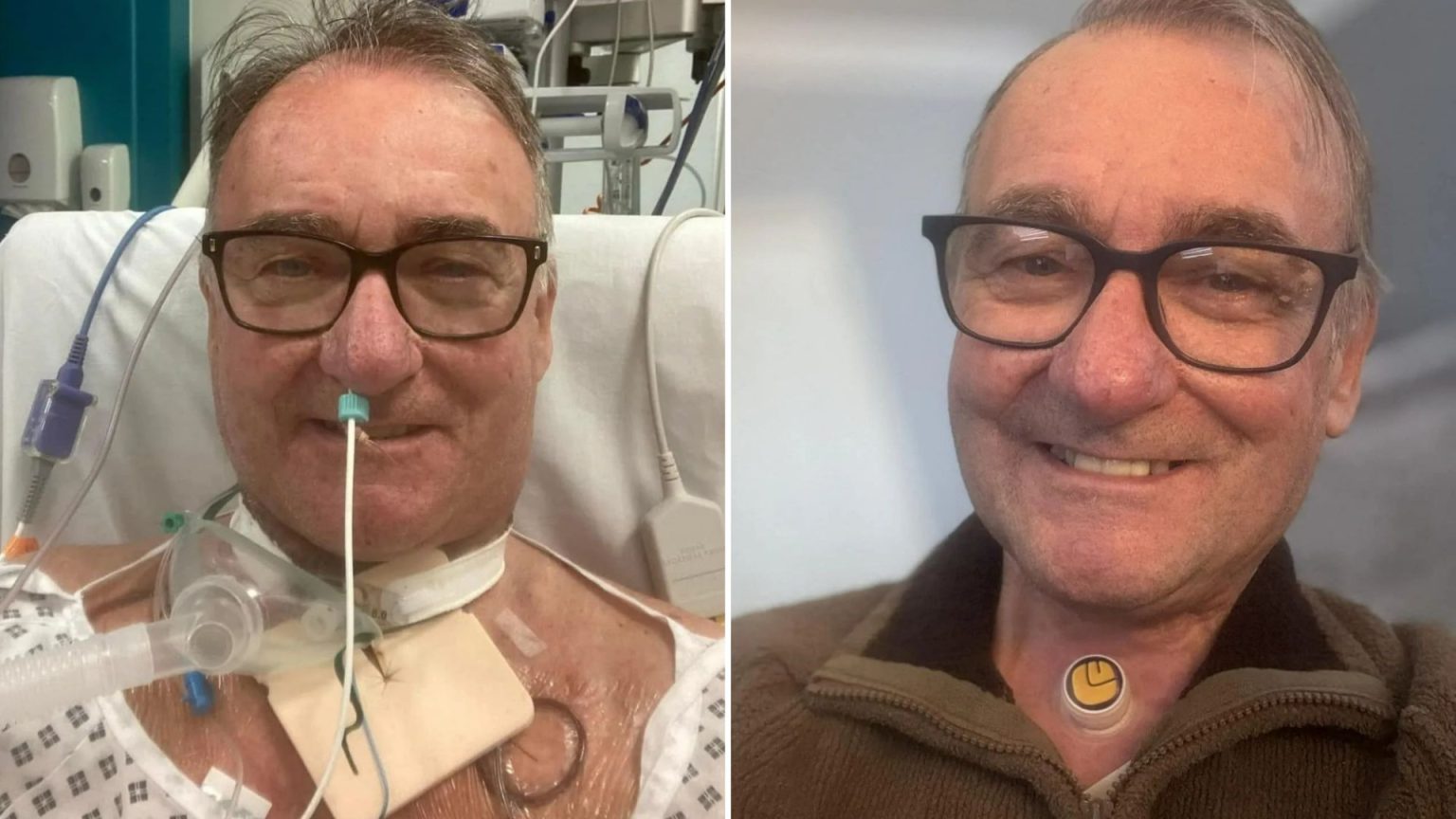Warwick Smith, a 67-year-old court clerk from Manchester, experienced persistent difficulty speaking, which was initially dismissed by doctors as laryngitis. Despite repeated visits to his GP over several months, his symptoms worsened, making it increasingly challenging for him to communicate with colleagues. Haunted by the memory of his brother’s death from throat cancer, Warwick’s anxiety grew as his condition deteriorated. His pleas for further investigation were brushed aside, leaving him feeling frustrated and ignored. Only after an emotional breakdown during his third visit to the GP did he finally manage to secure a referral to a specialist. This breakthrough came about due to a cancellation, highlighting the strain on medical resources. The subsequent nasal endoscopy and biopsy revealed the devastating truth: Warwick had stage 4 laryngeal cancer.
The diagnosis sent shockwaves through Warwick’s life. The news brought back the painful memories of his brother’s battle with a similar cancer, and fueled his anger at the delayed diagnosis. He immediately researched the condition online, confirming his worst fears and further reinforcing his frustration with the earlier dismissive responses from his GP. Doctors outlined his stark options: face the grim prognosis of six months to live, or undergo a total laryngectomy – a radical surgery to remove his voice box. This procedure, though effective in treating advanced laryngeal cancer, carries a life-altering consequence – the loss of natural speech.
Faced with this difficult choice, Warwick opted for the laryngectomy in December 2022. The surgery was followed by a period in intensive care and a grueling regimen of radiotherapy and chemotherapy. The laryngectomy created a stoma, a hole in his neck, through which he now breathes. Learning to speak again involved mastering a new technique of pressing on the stoma to force air through his throat, producing sounds he could shape into words. The treatment wasn’t without its complications; Warwick’s kidney function plummeted to a dangerous 20%, necessitating adjustments to his chemotherapy.
Adjusting to life after the surgery proved challenging. The loss of his voice was profoundly frustrating, leading to misunderstandings and feelings of isolation. People often mistook him for being deaf, or simply ignored him, forcing him to rely on written communication. The simple act of ordering a pint at his local pub, once taken for granted, became a significant milestone in his recovery journey, symbolizing his determination to reclaim aspects of his former life.
Warwick’s story underscores the critical importance of persistent advocacy for one’s own health. His initial symptoms, though seemingly innocuous, masked a serious underlying condition. His perseverance in seeking medical attention, despite repeated setbacks, ultimately led to the diagnosis and treatment that saved his life. The experience highlighted the frustrations patients can face when their concerns are dismissed, and the crucial need for doctors to listen attentively to their patients, especially when family history suggests an increased risk.
Now, awaiting scan results that will hopefully confirm his cancer is in remission, Warwick is focusing on giving back. He dedicates his time to fundraising for The Oldham Quiet Ones, a local laryngectomy support group where he serves as treasurer. His efforts aim to provide crucial medical equipment for fellow laryngectomees, demonstrating his commitment to supporting others navigating the challenges of life after laryngeal cancer. His journey serves as a powerful testament to the resilience of the human spirit in the face of adversity.











